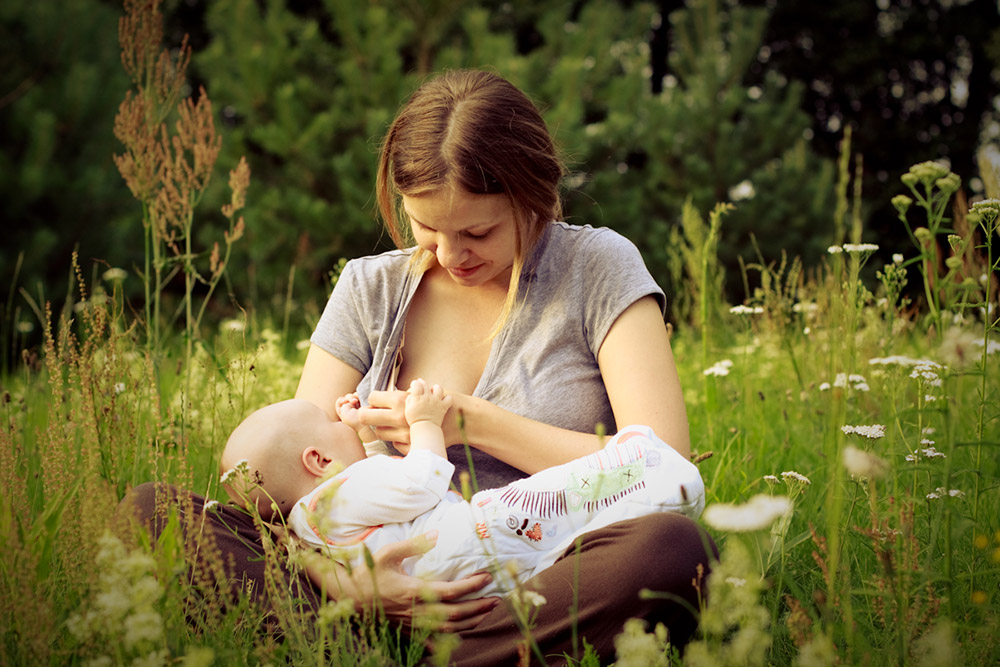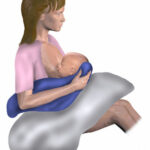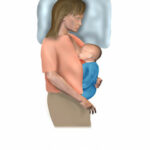Breastfeeding is a personal decision. It is also an important matter that draws mixed opinions from family and friends. However, today many new parents have different opinions about breastfeeding.
Still, many medical specialists, including the American College of Obstetricians and Gynecologists and the American Academy of Pediatrics (AAP), strongly recommend breastfeeding.

If you are having doubts about making a decision to breastfeed or not, Your Health Tubers tried to answer some of the most common questions, in order to help you make the right choice.
Why is breastfeeding so important?
Every mother has personal, different experience with motherhood, but every new mother has the same first doubt about the decision how to feed her baby.
Many authorities are claiming that when you choose to breastfeed, you make a great investment in your child’s future. The breast milk is an ideal food for the baby and a healthy start that lasts for a lifetime. Here are some of the reasons why:
- Protects the baby
- Benefits mother’s health
- Make the feeding easier
- Society benefits
What are the benefits of breastfeeding for the baby?
Breast milk is highly recommended for the first 26 weeks (6 months) of the baby’s life. Is has a great mix of vitamins, fat, and protein, which is all the baby needs to grow healthy.
Breast milk also contains antibodies that help the newborn fight off bacteria and infections. It lowers the risk of having allergies and asthma. It is proven that children who are breastfed for the first 26 weeks have lesser respiratory illnesses, ear infections, and diarrhea.
After that, giving the child breast milk along with family foods for the first 2 years, or if you want even longer, will help them develop and grow healthy. Breastfeeding can reduce the risks of:
- Infections
- Vomiting and diarrhea
- Type 2 diabetes
- Childhood leukemia
- Obesity
- Certain types of cancer
- Heart diseases later in life
What are the benefits of breastfeeding for the mother?
Breast milk and breastfeeding also has great health benefits for the mother. It can help you burn calories and lose pregnancy weight faster.
Breastfeeding can lower the risk of:
- Ovarian cancer
- Breast cancer
- Osteoporosis
- Obesity
- Heart diseases
Since mother does not have to buy expensive warm bottles, measure formula and sterilize nipples, this process can save you money and time. You can spend more time with your baby, and relax gently as you bond.
Why do some mothers choose not to breastfeed?
Choosing whether to formula feed or breastfeed your baby is one of the most important decisions that you will make. For many women, the decision to breastfeed or formula feed is usually based on their lifestyle, comfort level, and particular medical situations.
Nowadays, some women avoid to breastfeed in public or prefer the father or another caregiver to bottle-feed the baby in order to bond. There are also women who think that this process will ruin the appearance of their breasts. However, many breast surgeons argue that genetics, age, gravity and certain lifestyle factors (as smoking) can change the shape of the breasts more than breastfeed can.
Other mothers believe that if they do not breastfeed, they won’t be able to bond with their baby. However, the truth is, the loving mother will always create a special, lifetime bond with her child. Feeding, no matter how is a wonderful time to strengthen that bond.
For women who decide not to breastfeed or are unable to, infant formula can be a healthy alternative. The formula provides children with the nutrients they need to thrive and grow.
How does breastfeeding benefit our society?
There are also certain society benefits when mothers breastfeed, such as:
- It can save lives
Latest researches have shown that if about 85-90 % of the families breastfeed regularly for 26 weeks, nearly 1000 deaths among babies can be prevented.
- It can make workforce be more productive
Women who breastfeed miss less their job to care for a sick child than women who feed their babies formula. Also, employer medical cost is lower.
- It is much better for our environment
Bottle supplies and formula can create more plastic waste and trash. Mother’s milk is a renewable supply.
- It saves cash
The USA would save $2.1 billion per year if more mothers decide to breastfeed. This is because medical care costs are way lower for breastfed newborns than formula feeding babies. The breastfed babies usually need lesser doctor visits, hospitalizations, and prescriptions.
How does breastfeeding aid in an emergency case?
In case of some emergency, as natural disaster, this process can save your child’s life:
- It can protect your infant from the risk of unclear water supplies.
- It can protect your infant against diarrhea and respiratory diseases.
- Mother’s milk always has the right temperature for the newborn – so it won’t drop too low.
- Mother’s milk is always available without needing other supply.
What is the best breastfeeding position?
The best position for you and your newborn are both relaxed and comfortable. Here are the most common positions for breastfeeding your infant:
- Cradle position
- Football position
- Side-lying position
Conclusion:
It is never too early to think about how you are going to feed your newborn. However, you do not have to decide until your child is born.
In the USA, up to 72% of the women do not follow new recommendations that they MUST breastfeed their newborns for the first 6 months.
Breastfeeding is truly important process for many reasons, including:
- The breast milk is ideally designed for the baby;
- It protects the baby from infections, and other more serious diseases;
- It is available for the baby whenever it needs, and
- It has numerous other health benefits.
Babies have a tendency to digest formula slower than breast milk, thus, bottle feedings cannot be as frequent as the breastfeeding session.
Decision to formula or breastfeed your child is a personal one. Evaluating pros and cons of both methods can help you to decide what will be best for you and your baby.
Note: Contact your doctor before feeding your newborn anything besides a breast milk.



